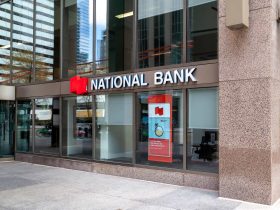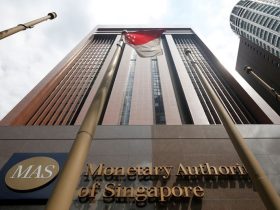(Reuters) – The Federal Reserve is unlikely to raise interest rates at its Oct. 31-Nov. 1 meeting, Goldman Sachs strategists wrote on Saturday, while also forecasting the U.S. central bank would lift its economic growth projections when policymakers gather next week.
“On November, we think that further labor market rebalancing, better news on inflation, and the likely upcoming Q4 growth pothole will convince more participants that the FOMC (Federal Open Market Committee) can forgo a final hike this year, as we think it ultimately will,” the investment bank’s strategists wrote in a report.
Goldman’s strategists, however, wrote that they expect the Fed’s “dot plot,” which reflects policymakers’ interest rate projections and will be updated on Wednesday, to show “a narrow 10-9 majority still penciling in one more hike, if only to preserve flexibility for now,” they wrote.
As market participants try to gauge the Fed’s monetary policy trajectory, some big investors, including J.P. Morgan Asset Management and Janus Henderson Investors, have said the central bank is likely done hiking rates, following the most aggressive monetary policy tightening cycle in decades.
Futures tied to the Fed’s benchmark overnight interest rate were factoring in a 98% chance that the central bank would leave rates unchanged at the end of its Sept. 19-20 meeting, according to CME Group’s (NASDAQ:) FedWatch Tool. The odds for the policy rate, which is currently in the 5.25%-5.50% range, staying unchanged at the Oct. 31-Nov. 1 gathering stood at roughly 72% on Saturday, CME’s data showed.
Next year could see “gradual” rate cuts if inflation continues to cool, Goldman’s strategists added.
They also said the central bank could raise its estimates for 2023 U.S. growth to 2.1% from 1%, when policymakers update their economic projections on Wednesday, reflecting the economy’s resilience.
Goldman’s strategists also expect the Fed to lower the estimate for the 2023 unemployment rate by two-tenths of a percentage point to 3.9%, and reduce the estimate for core inflation by four-tenths of a percentage point to 3.5%.
Read the full article here













Leave a Reply